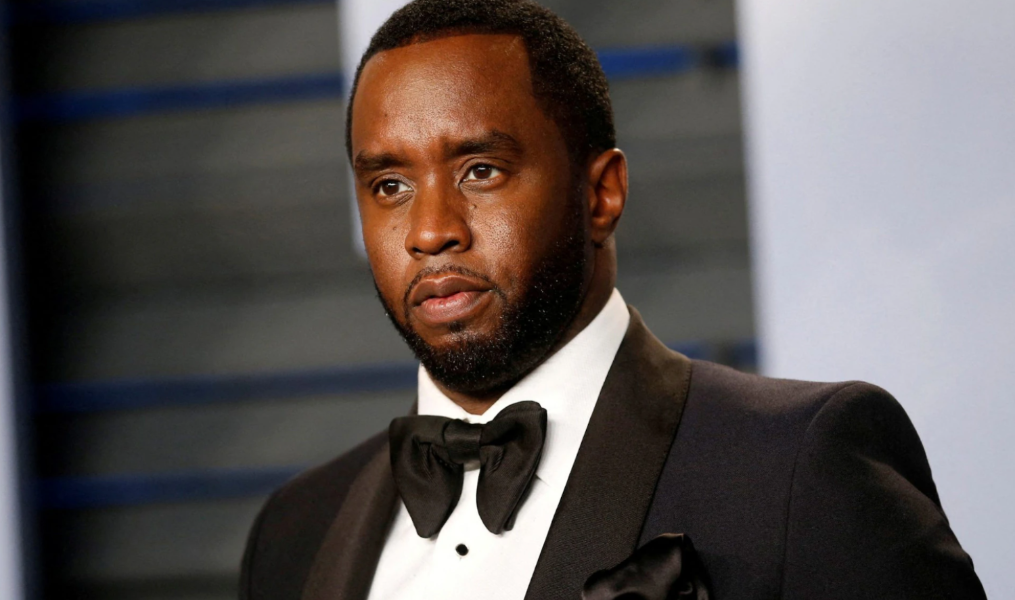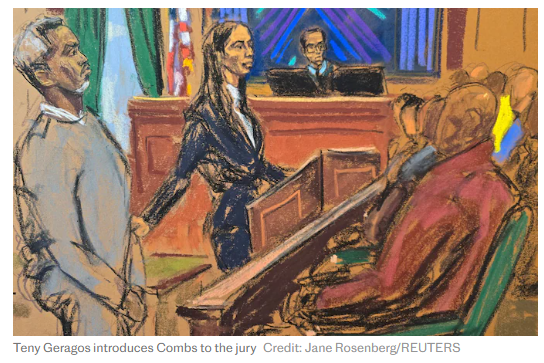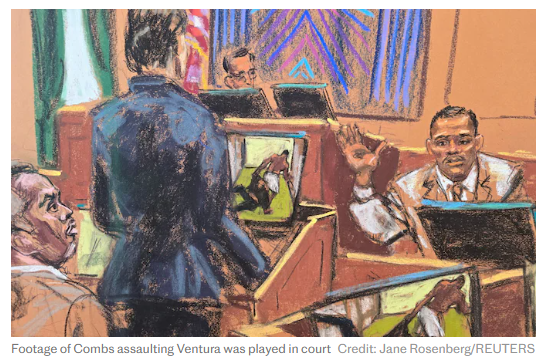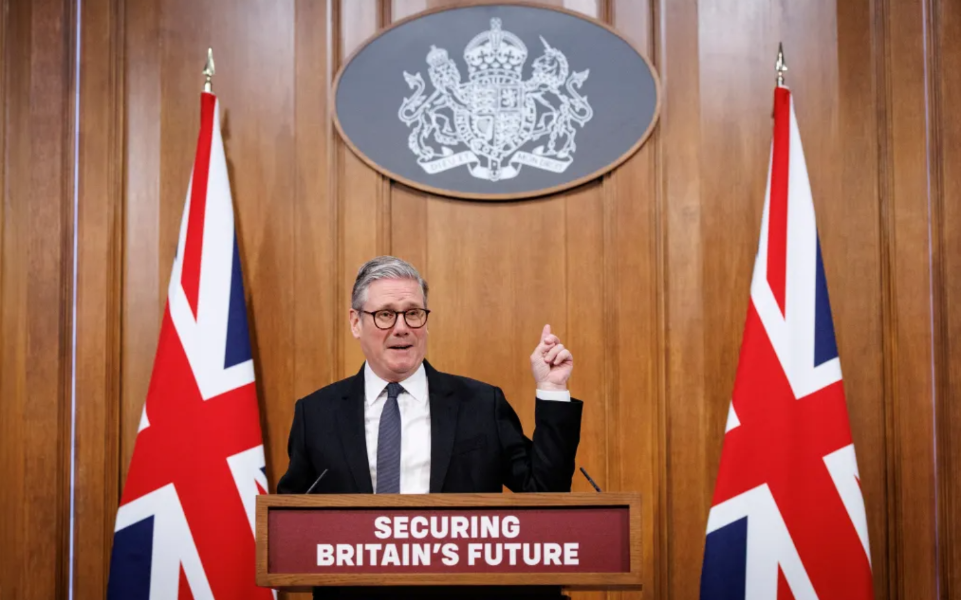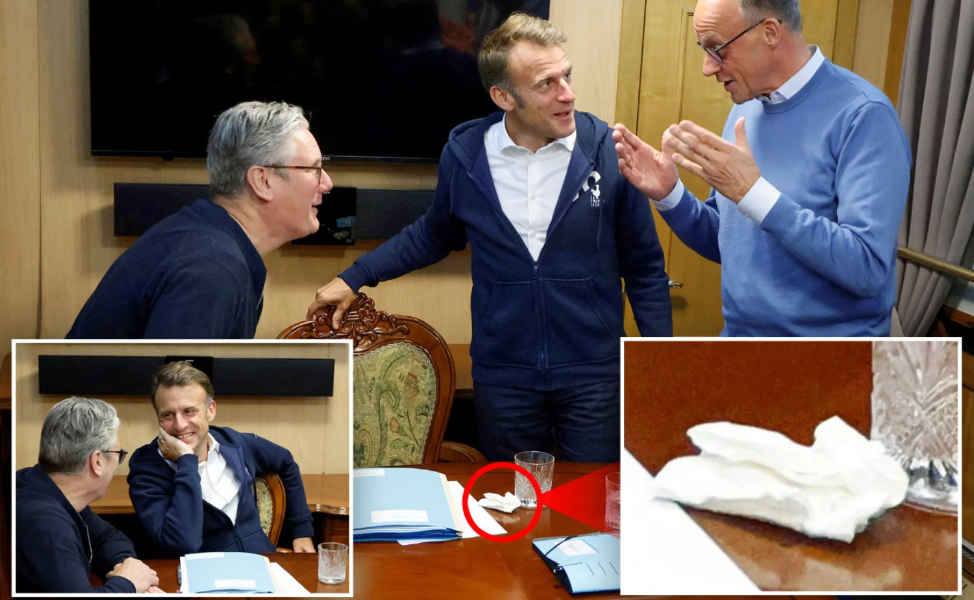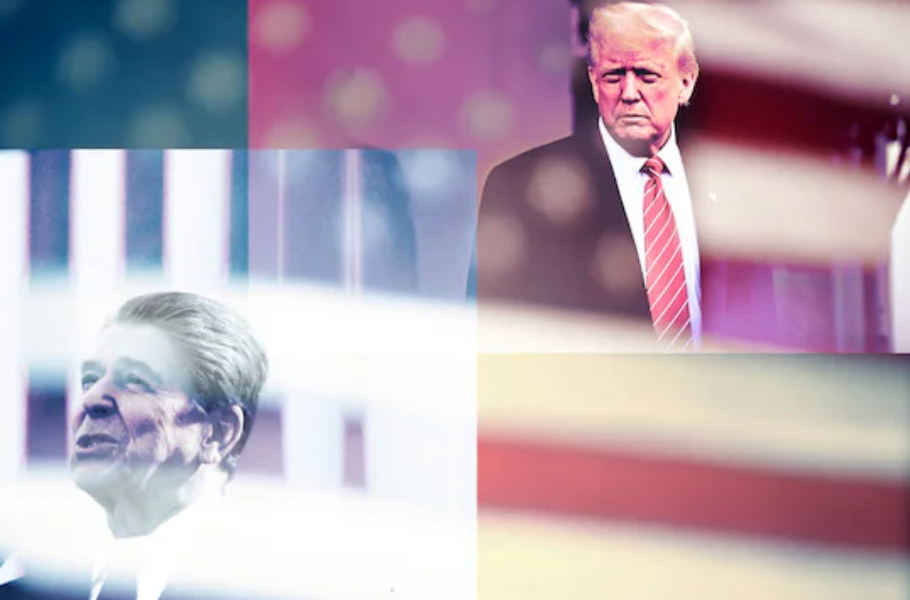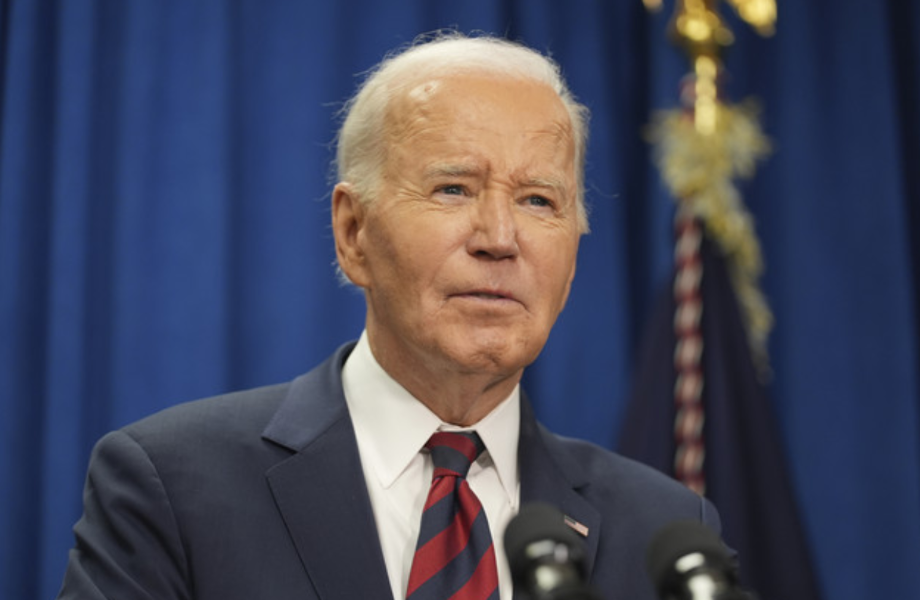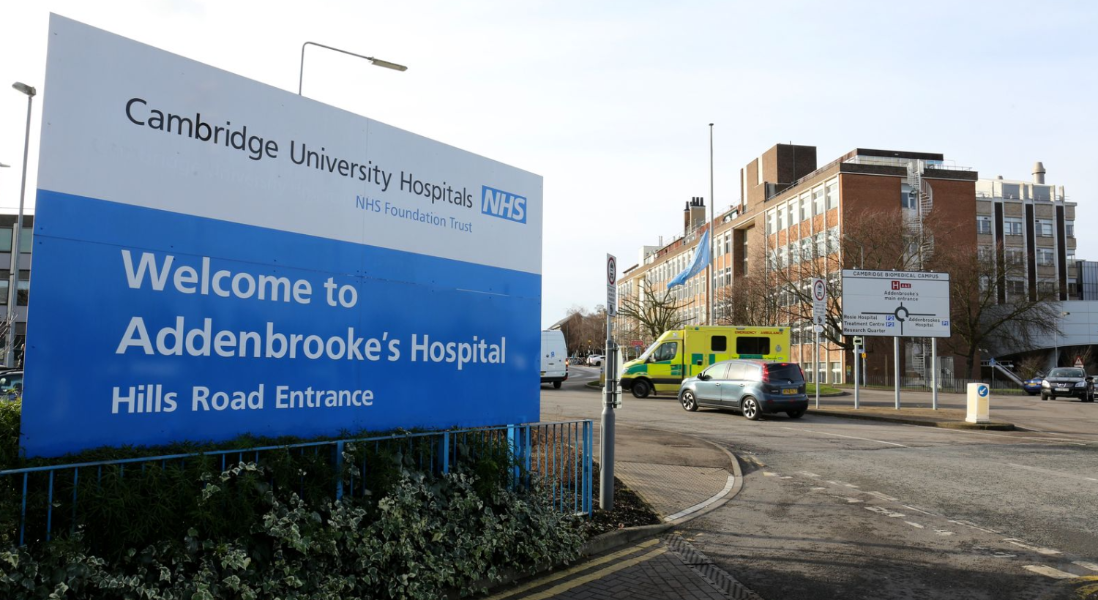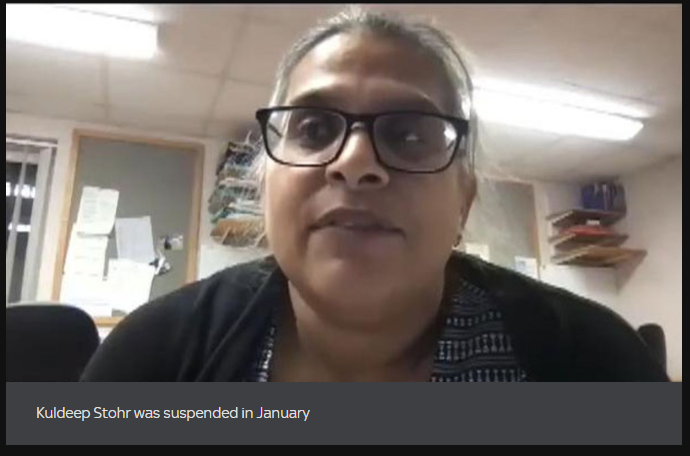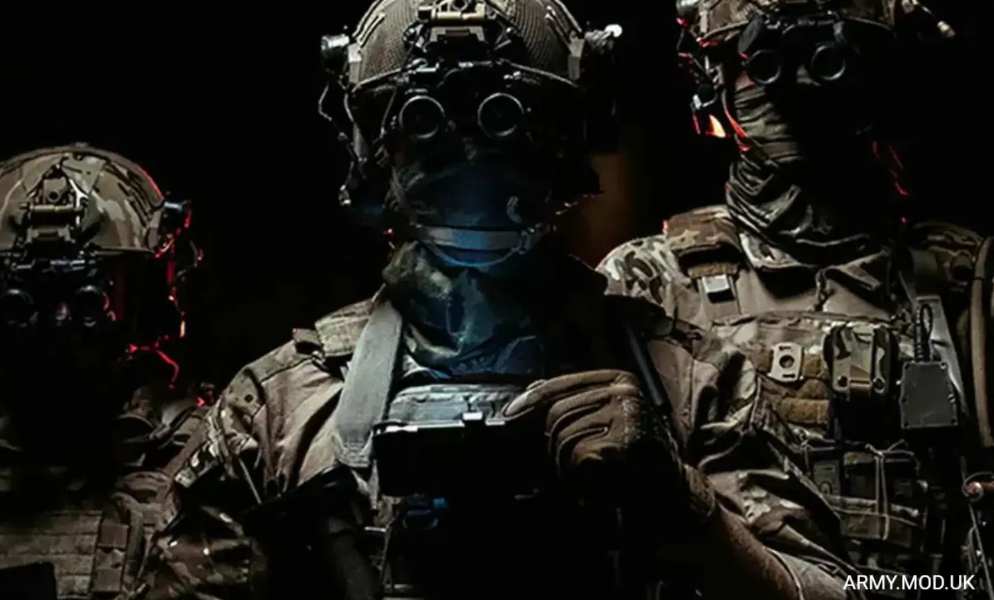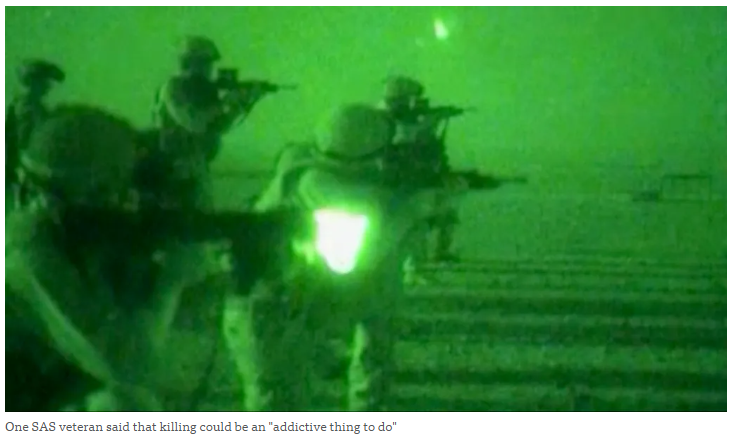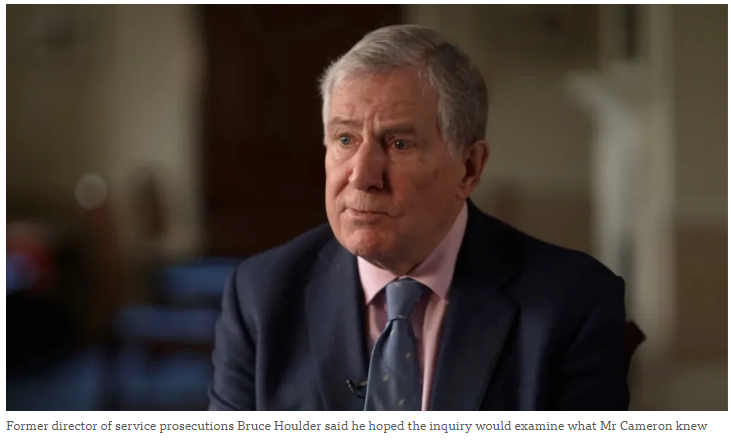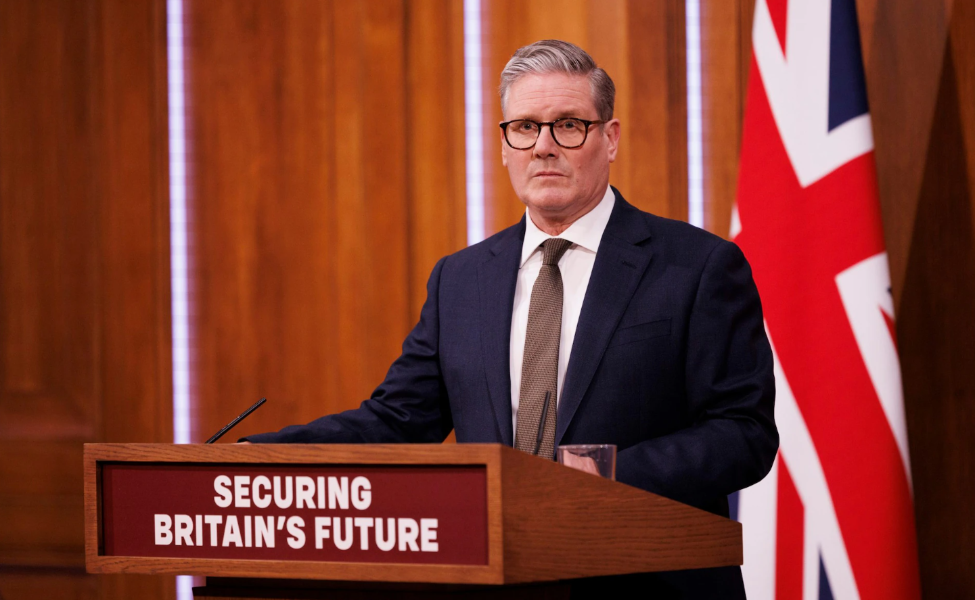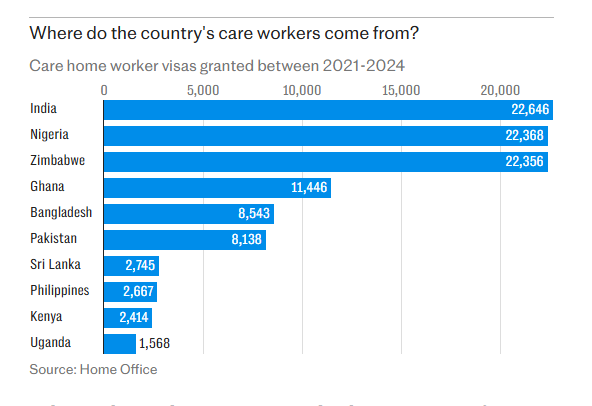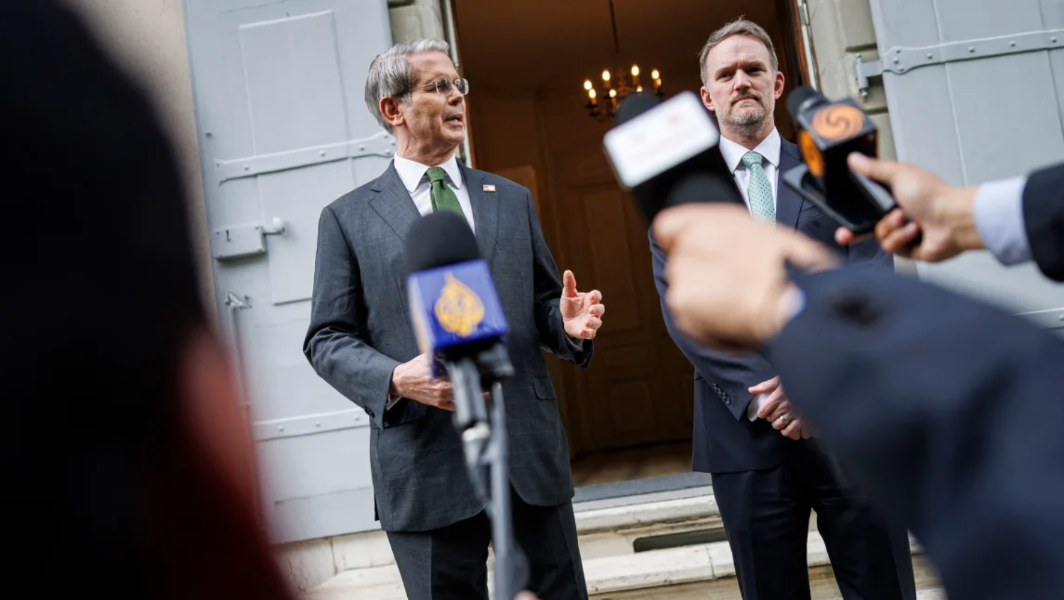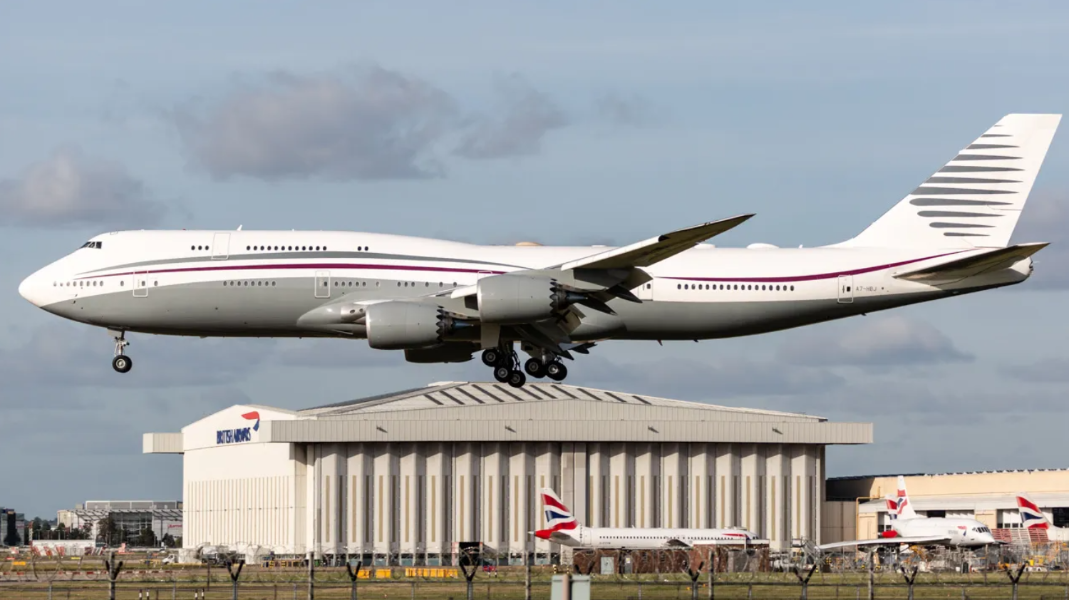-
Posts
10,807 -
Joined
-
Last visited
Content Type
Events
Forums
Downloads
Quizzes
Gallery
Blogs
Everything posted by Social Media
-
Title: Diddy’s Dark Double Life: Trial Hears Disturbing Allegations of Abuse and Sex Trafficking Sean “Diddy” Combs, once considered a towering figure in the music industry, is now at the center of a harrowing criminal trial that threatens to dismantle his legacy. Prosecutors in a Manhattan federal court painted a chilling picture of the 55-year-old rapper as a violent predator who abused his fame and fortune to dominate, exploit, and terrorize women over many years. Opening statements alleged that Combs referred to himself as “the king” and forced women to engage in drug-fueled sex marathons with male escorts while he watched and recorded them. These encounters, described as “freak-offs” or “wild king nights,” were filmed and used as blackmail material to control and silence victims. “He sometimes called himself the king, and he expected to be treated like one,” prosecutor Emily Johnson told the court. She said Combs “would force his victims to perform for hours and days at a time,” punishing them brutally when they failed to meet his demands. The charges against Combs include racketeering conspiracy, sex trafficking, and transporting individuals for prostitution. If convicted on all counts, he faces a mandatory minimum of 15 years and could be sentenced to life in prison. Combs has pleaded not guilty. Two of Combs’s former partners, singer Cassie Ventura and another woman identified only as “Jane,” are expected to play central roles in the trial. Johnson told the jury they would “tell you about some of the most painful experiences of their lives.” She described Ventura’s ordeal of being trapped in dark hotel rooms, high on drugs, and forced into sex acts she did not consent to. The prosecution claimed Combs threatened to ruin her career and leak explicit footage if she disobeyed him—“souvenirs of the most humiliating nights of her life.” The court also heard disturbing testimony from Daniel Phillip, a male escort who said he was paid thousands to have sex with Ventura while Combs directed the encounters. He described the rapper wearing a bandana over his face, orchestrating the scenes, and at one point violently dragging Ventura by her hair when she did not respond quickly enough. Phillip said that after one such assault, Ventura was “visibly upset” but Combs insisted they continue. “Her entire body was shaking like she was terrified,” Phillip testified. He claimed he was too afraid to go to the police, believing Combs’ power and influence put his life in danger. Prosecutors alleged that Combs’s criminal behavior extended beyond physical violence. Staff were said to supply escorts with drugs, fulfill his exacting demands for lighting and other conditions during the sex parties, and help conceal the abuse. In one instance from 2009, Ventura was allegedly stomped on and kept hidden in a hotel for a week to cover up her injuries. A 2016 tape of Combs assaulting Ventura in a Los Angeles hotel, which the prosecution says he tried to suppress with a $100,000 bribe, is expected to be a pivotal piece of evidence. “Jane,” the second key witness, began a relationship with Combs in 2020. At first, the sex was consensual and private, but it soon evolved into coerced “freak-offs” fueled by drugs, the court heard. Combs sat quietly in court, wearing a white jumper, flanked by six of his seven children and his mother, Janice Combs. His defense lawyer, Teny Geragos, sought to reframe the narrative, arguing that prosecutors were turning consensual relationships and a “swingers lifestyle” into a criminal conspiracy. She admitted Combs was guilty of domestic violence but said he was not a sex trafficker. “What Combs did to Cassie on this videotape is indefensible,” she told the jury. “It is basically every bad word you can think of. It is not evidence of sex trafficking, it is evidence of sexual violence.” The defense also suggested that financial motivations played a role, pointing out that Ventura allegedly demanded $30 million from Combs in a previous settlement attempt. But the prosecution maintained that the women were manipulated, abused, and silenced by a man who used his status to shield a hidden life of exploitation. The trial continues. Adapted by ASEAN Now from The Times 2025-05-14
-
Title: Starmer’s Immigration Overhaul Faces Criticism for Ignoring Illegal Asylum Crisis In a bold yet contentious speech, Prime Minister Sir Keir Starmer warned that Britain risks becoming an “island of strangers” if current immigration levels are not curbed. While the address marked a significant rhetorical shift from Labour’s historical stance on migration, critics argue that the proposals fall short—particularly in tackling illegal asylum seekers arriving via small boats. Sir Keir’s remarks signaled a break from years of Labour orthodoxy, where concerns about the consequences of mass immigration were often sidestepped. Acknowledging the “incalculable” economic and societal damage caused by porous borders, he introduced a white paper aimed at reining in what he called unsustainable levels of legal immigration. With net migration figures currently nearing 700,000 annually, Starmer appears to be responding to growing public discontent—and political pressure following Labour’s recent losses to Reform UK, a party whose rise has been fueled by its hardline immigration stance. Despite the tough rhetoric, Starmer’s policy proposals focus almost exclusively on legal migration. Among the new measures are plans to extend the residency requirement for settlement and citizenship from five years to ten, introduce tougher English language requirements, penalize employers who fail to prioritize British workers, and reduce the time foreign students can remain in the country. Universities may also face fees for enrolling overseas students. One of the most striking proposals is the decision to end the recruitment of overseas care workers. In 2023 alone, 58,000 foreign nationals entered the UK on care visas—a significant share of the sector’s labor force. Under the new rules, care providers will be required to recruit from within the existing domestic population. While this could reduce migration numbers, it also risks causing major disruption to a sector that already suffers from chronic staff shortages. The government also plans to restore a requirement that skilled visa holders be university graduates, reversing a policy introduced under Boris Johnson. The Home Office estimates that these combined changes could cut net migration by 100,000. Yet even this figure leaves the UK’s immigration levels far above pre-Brexit targets. The Office for National Statistics forecasts that net migration could remain as high as 525,000—a number equivalent to the population of Leeds. While these steps mark a change in tone and policy for Labour, glaring omissions remain. Most notably, Starmer’s plan makes no mention of illegal migration. The government has yet to establish a promised returns agreement with European countries, leaving thousands of asylum seekers in limbo. Furthermore, there is still no replacement for the scrapped Rwanda scheme, nor a clear strategy to deal with legal challenges from the European Court of Human Rights, which has impeded deportations of foreign criminals. Starmer’s acknowledgment that high levels of immigration may not offer the economic benefits once assumed reflects a shift in mainstream economic thought. He has also, to his credit, addressed the broader societal implications. However, to implement these changes, he must confront resistance from within his own party, where many remain wary of tougher immigration controls. Calling past failures a “squalid chapter” in political history, the prime minister now faces the daunting task of proving he can deliver where others have not. Whether his proposals are enough to satisfy public demand—and whether he can find the political will to tackle illegal immigration head-on—will define the success of this new chapter in UK migration policy. Adapted by ASEAN Now from The Times 2025-05-14
-
Redefining Identity: Why the Children of Celebrities Are Coming Out as Transgender In late April, Airyn De Niro, formerly known as Aaron, stepped into the public eye not as the child of Oscar-winning actor Robert De Niro, but as her own person—a transgender woman. In an interview with LGBTQ+ publication Them, she explained, “There’s a difference between visible and being seen. I’ve been visible. [But] I don’t think I’ve been seen yet.” Robert De Niro, a father of seven, voiced his support unequivocally. “I loved and supported Aaron as my son and now I love and support Airyn as my daughter,” he said. “I don’t know what the big deal is…I love all my children.” In Hollywood, the revelation met with little surprise. Airyn joins a growing number of children of celebrities who identify as transgender or non-binary, including those of Sting, Cher, Elon Musk, Jamie Lee Curtis, Sigourney Weaver, and Cynthia Nixon. While the reasons for such deeply personal decisions are varied and complex, some observers suggest that growing up in the unique pressure-cooker environment of fame may contribute to the search for self beyond inherited identity. Sascha Bailey, son of renowned photographer David Bailey and model Catherine Dyer, described this impulse succinctly: “By becoming trans, you can break out of the predefined role you were born into and create a new space for yourself. You become something unique and you are rewarded for it.” Now 30, Sascha once considered transitioning to a woman but reversed course after falling in love and confronting the potential sacrifices involved, such as losing the opportunity to become a biological parent. “It is important that people should be able to change their mind—if they want to—without people attacking them,” he said. Sascha has since chronicled his experience in a book, Try to Hit the Pool: Modern Man and the Behavioural Sink, exploring the tension of growing up in the shadow of fame. “Whatever you do in life, people are watching. If you go into the same profession as your parents, you are called a nepo baby. But if you work in Starbucks, people will take photos of you and ask, ‘Why are they working in Starbucks?’” he explained. “It can feel like people want to take something from you because you have something that they don’t have. You are vulnerable, and it can feel hard to make real friends, to form bonds.” Charlotte Falconer, a former teacher and child counsellor, agrees that gender identity can become a way for children of celebrities to reclaim their individuality. “The world of being a ‘celebrity’s child’ will come with attention drawn away from them to their parents,” she said. “So, this type of gender expression may be coming from a place of need; a place that parents may not be aware of or able to meet. Creating a gender difference is often something that can’t be ignored.” Others, like psychotherapist James Esses, take a more critical view. “The children of celebrities have the luxury of time and money to indulge in a never-ending fixation on their self-identity,” he said. “There is a reason why swathes of children from war-torn regions or facing abject poverty are not coming out as ‘trans.’ It’s because they have more pressing issues.” According to Esses, fame can amplify affirmation to such a degree that changing one’s mind becomes a daunting prospect. “We know that ‘coming out’ as ‘trans’ is often met with celebration and positive reinforcement, and with celebrity culture, these things are on steroids,” he said. For some families, this dynamic leads to regrets. A spokesperson for Bayswater, a UK support group for parents of trans-identifying youth, noted that many initially believed that name and pronoun changes were harmless. “What they tell us is that they never expected it to lead to requests for cross-sex hormones or surgery. Another theme we are increasingly seeing is desistance, which is more complicated for a child whose parents have publicly taken a position on their child’s identity.” Sascha found that out the hard way. “The fallout was massive,” he recalled after deciding not to transition. “Some of my friends abandoned me.” Yet the experience has given him a voice. “I started to get messages from parents and people who were transitioning and detransitioning saying that my story had made them reconsider things,” he said. “It is important for people to know there are options, whatever you want to do.” As for Airyn De Niro, she seems both humbled and dazed by the spotlight. “I’m not used to all these eyes on me,” she wrote on social media, thanking those who had shown support. For better or worse, the gaze that once belonged solely to her famous father now includes her too—this time, on her own terms. Adapted by ASEAN Now from The Telegraph 2025-05-14
-
Macron Slams Kremlin's "Cocaine Train" Claims as Desperate Disinformation President Emmanuel Macron has strongly condemned a bizarre conspiracy theory promoted by pro-Russian media and officials alleging he used cocaine while traveling to Kyiv with fellow European leaders. The French presidency, in a public rebuke, dismissed the rumor as absurd and part of a broader campaign of disinformation aimed at undermining European unity. “This fake news is being spread by France’s enemies, both abroad and at home. We must remain vigilant against manipulation,” the Élysée Palace posted on X, formerly Twitter. The statement followed the circulation of doctored or misleading footage online purporting to show Macron, German Chancellor Friedrich Merz, and British Prime Minister Sir Keir Starmer using cocaine during their train journey to Ukraine. Social media posts promoting the conspiracy showed Macron picking up a used tissue, which conspiracy theorists claimed was a bag of cocaine. Others alleged that Merz was seen using a “cocaine spoon.” However, high-definition video footage of the incident clearly showed that Macron was handling a crumpled tissue, and the so-called spoon was nothing more than a standard plastic coffee stirrer. The Élysée responded pointedly: “When European unity becomes inconvenient, disinformation goes so far as to make a simple tissue look like drugs.” The trio had been traveling overnight from Poland to Ukraine to meet with President Volodymyr Zelensky and Polish Prime Minister Donald Tusk. During the visit, they collectively called on Russia to observe a 30-day ceasefire, a proposal that President Vladimir Putin quickly rejected. In a further escalation, the Russian foreign ministry amplified the conspiracy. Its spokeswoman, Maria Zakharova, posted on Telegram: “A Frenchman, an Englishman and a German” had allegedly been spotted with cocaine paraphernalia. She wrote, “The fate of Europe is being decided by utterly (drug) dependent individuals. It’s as if the Almighty Himself is lifting the veil on this putrid spectacle.” Zakharova also repeated the Kremlin's long-standing narrative that President Zelensky is an “unstable cocaine addict,” adding that a Western diplomat had supposedly confided in her that drug use was common among European leaders. The inflammatory remarks align with a consistent pattern of false narratives promoted by Kremlin-affiliated accounts. One such French-language pro-Russian account cynically commented: “Coke is going to take decisions on the third world war.” The French government has warned that these attacks are part of an intensified digital assault by Russia’s GRU military intelligence agency, which Paris says has been targeting President Macron’s administration since 2017. “It infiltrates French digital networks with two aims: collecting intelligence for the benefit of the Kremlin and destabilising our society by creating distrust,” the foreign ministry stated earlier this month. Macron himself has been a frequent target of Russian-backed online campaigns. These have included baseless claims about his sexuality, accusations that his wife Brigitte is transgender, and conspiracy theories linking him to a supposed global cabal orchestrated by billionaire George Soros. The accounts pushing the cocaine rumor have now suggested that the Élysée has ordered French media outlets to suppress coverage of the story—yet another unsubstantiated claim in a growing list of provocations. Despite the noise, French officials remain adamant that such attacks only underscore the desperation of those threatened by European solidarity. Adapted by ASEAN Now from The Times 2025-05-14
-
Trump’s Second-Term Ambitions Are Decades in the Making While much attention has been paid to “Project 2025,” the sweeping conservative policy plan associated with Donald Trump’s second-term ambitions, the ideological blueprint for an aggressive executive branch dates back far earlier—to the Reagan-Bush era. A book of essays published in 1988, The Imperial Congress, by the Heritage Foundation and the Claremont Institute, anticipated much of the executive assertiveness that Trump has since embraced. The volume reflected conservative frustration as Reagan’s presidency came to a close, arguing that Congress had become too dominant and the presidency dangerously weakened. Its authors envisioned a president who could reshape national perceptions through bold and immediate executive action. One essay imagined a president who, “in the first weeks of his administration,” would use “far-reaching executive orders” to convince Americans that “this president, for a change, looks out for them.” The president might even order the “immediate expulsion of dangerous aliens” on national security grounds—a vision uncannily echoed in Trump-era rhetoric and actions. This wasn’t written about Trump, but rather George H.W. Bush. Yet it laid a theoretical foundation for a presidential style now reaching its apex under Trump. At the time, Republicans had held the White House for 16 of the prior 20 years and were about to continue their streak. But they faced a formidable obstacle: a Democratic-controlled House of Representatives, which had not flipped since the 1950s. Conservatives feared their presidential victories were being nullified by a stubborn Congress. Newt Gingrich, then on the rise and the author of the book’s foreword, would lead the eventual Republican takeover in 1994. But back in 1988, thinkers like Gordon S. Jones, the editor of The Imperial Congress, believed the answer was a stronger executive. “To wield the weapon of a reinvigorated executive,” he wrote, was essential. The book’s prescriptions were radical for their time. It called for the president to exert control over independent agencies by firing all commissioners, to “ignore, or challenge directly” congressional micromanagement, and to resist Senate influence on appointments. One essay advocated repealing the two-term limit for presidents. Another suggested presidents fight publicly with the judiciary and vigorously defend executive privilege—even in defiance of Supreme Court rulings. Political scientist Thomas G. West questioned why the media should have special access to the White House, while the book urged the creation of “new centers of authority and information” under the president’s control. The logic was echoed again in The Fettered Presidency, a 1989 American Enterprise Institute publication. Its editors, L. Gordon Crovitz and Jeremy A. Rabkin, insisted presidential powers must be used “with greater vigor and resolve.” At the time, the view was that a domineering Democratic Congress constrained Republican presidents. But today’s political landscape is different. Republicans have controlled the House for much of the 21st century and have appointed a majority of the Supreme Court justices. Nevertheless, the Trump administration has carried forward the old vision with unmatched intensity. Rabkin himself, now at George Mason University, recently noted that “a Republican majority in Congress does not want to challenge a Republican president and it has such slim margins that it can’t dare anything controversial (as trying to restrain Trump would be).” Thus, Trump’s expanded executive power is not a response to hostile opposition, but rather a product of its weakness. The original architects of this philosophy knew their arguments could blur into partisanship. As The Fettered Presidency acknowledged, “Republican complaints about an overbearing Congress might be interpreted as the cries of one set of partisans against the institutional leverage of their partisan opponents.” Yet those opponents have largely lost that leverage. Presidents have grown more assertive, and their congressional allies more compliant. Trump’s presidency is the culmination of that evolution. Gordon S. Jones, writing decades ago, pointed to moments in history when presidents pushed beyond their legal limits—Jefferson’s Louisiana Purchase, Lincoln’s suspension of habeas corpus, Roosevelt’s pre-war military aid—and argued their boldness was vindicated by popular support. “Their power to do any of these things was suspect,” he wrote, “but their actions were supported by substantial majorities of the citizens, and the actions stood.” Some of Trump’s actions will likely stand too. But the landscape has changed. Presidential power is no longer a proxy for Republican dominance, and conservatives may soon find those powers wielded against them. That risk, ironically, is baked into the very presidentialism they once championed—to act decisively, before your rivals can do the same. Adapted by ASEAN Now from Washington Post 2025-05-14
-
UK Redefines Global Role as Aid Budget Faces Deep Cuts The UK is turning a new page in its international development policy, with ministers declaring that Britain will no longer function as a “global charity” in light of drastic cuts to its overseas aid budget. On Tuesday, Baroness Chapman of Darlington, the international development minister, will lay out the government’s revised priorities, highlighting a stark shift from traditional humanitarian support to a more strategic investment-based approach. This reorientation follows Prime Minister Sir Keir Starmer’s decision to slash the aid budget by nearly half, reallocating resources toward defence spending. As a result, funding for several aid initiatives—particularly those focused on gender inclusion, education, and digital access—is expected to be eliminated altogether. The overall aid budget is set to drop from 0.5 per cent of the UK’s gross national income to 0.3 per cent by 2027, a reduction amounting to £6.1 billion. Baroness Chapman is expected to tell MPs that these budgetary constraints are forcing the government to make tough decisions. “The days of viewing the UK government as a global charity are over,” she will say. “We need to prioritise, be more efficient. We have to get the best value for money — for the UK taxpayer, but also for the people we are trying to help around the world.” Her comments reflect a broader philosophical shift toward using British expertise rather than direct financial contributions to deliver results in international development. Rather than apply across-the-board cuts, ministers aim to reassess entire areas of expenditure, potentially halting aid to some countries altogether. The government will instead channel funds through international bodies like Gavi, the vaccine alliance, and the Global Fund, which targets diseases such as HIV, tuberculosis, and malaria. This strategy is intended to maximise impact and reduce administrative overhead. Some of the areas likely to be affected most severely include initiatives that promote gender equality and access to education. Whitehall sources confirmed that such programmes are on the chopping block, as officials attempt to meet budgetary goals ahead of the 2027 deadline. Cuts may begin as early as the next financial year to avoid a sudden and more damaging fiscal contraction in the future. The UK’s ability to project influence through soft power is also being questioned as a result of these changes. “The days of the UK being seen as a development superpower are over,” warned government insiders, marking a significant departure from the country’s post-World War II tradition of international aid leadership. Chapman, who assumed her role after Anneliese Dodds resigned in protest over the cuts, is inheriting a turbulent moment for UK development policy. Dodds had previously cautioned that Starmer’s decision would “remove food and healthcare from desperate people.” Further complicating the situation is the fact that £4.3 billion of the current £15.3 billion overseas aid budget is allocated to the Home Office to cover the costs of asylum seekers and illegal migration, including hotel accommodations. This portion of the budget is ring-fenced and cannot be cut, putting even greater pressure on remaining aid programmes. Officials at the Foreign, Commonwealth & Development Office remain hopeful that these domestic costs may decline in the medium term, but even optimistic projections will not ease the immediate demand for savings. As the UK government attempts to redefine its role on the world stage, its new vision stresses efficiency, return on investment, and strategic partnerships over broad-based humanitarian giving. Whether this approach will yield the same level of global impact—or diminish Britain’s influence abroad—remains to be seen. Adapted by ASEAN Now from The Times 2025-05-14
-
Toxic Truth: Why Kennedy’s Concerns About Chemicals in Food Deserve Serious Attention Health Secretary Robert F. Kennedy Jr. has drawn both attention and criticism for his assertion that synthetic chemicals in the American food supply are fueling a nationwide crisis of obesity and chronic illness. “A facade of normalcy has masked this meteoric rise in chronic disease, and we can no longer ignore it,” Kennedy stated recently, announcing his goal of removing nine petroleum-based synthetic food dyes from U.S. products within 18 months. Kennedy’s broader reputation for promoting dubious science, especially around vaccines, autism, and fluoride, makes his latest claims an easy target for skepticism. Yet on the issue of chemicals in food, his warnings may be closer to the truth than many are willing to admit. In fact, the reality may be even more troubling than he suggests. Roughly 10,000 additives—ranging from dyes and preservatives to pesticides and packaging chemicals—are permitted in food sold in the United States. These substances are especially prevalent in the ultraprocessed foods that now account for most of the calories consumed by Americans. The regulatory process that allows this is far more lenient in the U.S. than in Europe, where new food chemicals are treated as potentially unsafe until proven otherwise through rigorous review. In the U.S., many food additives make it to market through a loophole known as GRAS, or “generally recognized as safe.” Under this designation, companies can introduce new chemicals without prior FDA approval as long as their own hired experts deem them safe. These companies are encouraged—but not required—to inform the FDA, leading to a system where regulators may not even know which chemicals are in widespread use. Estimates suggest that the identities of around 1,000 such chemicals remain unknown to federal agencies. Kennedy has pledged to close the GRAS loophole as part of his broader food safety initiative. Even when the FDA does conduct safety assessments, the scope of their evaluations is limited. Most studies look for direct toxic effects—like cancer or organ damage—in animals or lab settings. They often ignore how chronic exposure over time, or the interactions between multiple chemicals, might impact human health in more subtle but significant ways. As researcher Maricel Maffini puts it, “F.D.A. is stuck on decades-old science and making decisions based on scientific principles that in many cases are irrelevant.” This outdated framework fails to match how Americans eat today—or how modern illnesses manifest. When the FDA was founded in the early 20th century, food safety concerns were focused on acute poisoning. Today, the primary health threats come from chronic diseases like obesity, diabetes, and cardiovascular illness, many of which develop slowly over years or decades. These conditions now contribute to the shortest average lifespan among industrialized nations. While the exact mechanisms remain unclear, scientists suspect that food additives play a role in this public health crisis. Biologists Amy Shyer and Alan Rodrigues at Rockefeller University are studying how chemicals labeled as “safe,” such as aspartame, might interfere with cellular development. Their findings suggest that these additives could alter how cells organize into tissues, opening up a new and poorly understood area of potential risk. Others, like former FDA and USDA official Jerold Mande, point to indirect harm. Synthetic dyes may not alter cells directly but could make processed foods more visually appealing and, in turn, more addictive—contributing to overeating, obesity, and the associated risks of diabetes and cancer. Despite Kennedy’s ambition, his plan currently lacks firm commitments from food companies. He recently acknowledged that there is only a “handshake understanding” to begin phasing out the targeted dyes, and so far, few corporations have publicly signed on. He has urged manufacturers to use natural colorants as substitutes, and the FDA has approved three new ones. But experts warn that the health impacts of these alternatives are also largely unknown. According to Maffini, assuming they are safer is an example of the “appeal to nature” fallacy. To address this growing concern meaningfully, any administration serious about reducing chronic disease must invest more deeply in scientific research. This includes funding for the FDA to update its oversight process and for the National Institutes of Health to increase support for nutrition science, which currently receives just five percent of its budget. Policymakers and researchers must investigate not only individual additives but also the complex food environments that shape our long-term health. Without a robust scientific foundation, Kennedy’s initiative risks being dismissed as mere conjecture. But the core issue—how chemicals in our food may be undermining our health—is too important to ignore. As history has shown, handshake deals and industry self-regulation are never enough when public health is at stake. Adapted by ASEAN Now from New York Times 2025-05-14
-

Israel Hamas War the Widening Middle East Conflict
Social Media replied to Social Media's topic in The War in Israel
@bannork another post with misleading order of quotes and no link has been removed. This must stop. -
Trump Administration Welcomes First Group of White South African Refugees Amid Controversy A chartered, US-funded flight carrying 59 white South Africans has landed in Washington, marking the first group of Afrikaners to be granted refugee status under a new initiative spearheaded by the Trump administration. This controversial policy has sparked criticism both in the United States and abroad, especially given the administration’s broader crackdown on global refugee admissions. The group, made up of families and individuals from South Africa’s Afrikaner minority, was greeted warmly by US officials at the airport on Monday. Some of the arrivals held small children and waved miniature American flags, with the terminal decorated in red, white, and blue balloons. Their arrival was notable not only for its symbolism but also for the speed at which their refugee applications were processed—an unusual move, considering that refugee vetting by the United States normally takes months, even years. President Donald Trump defended the expedited process, stating that white farmers in South Africa were victims of targeted violence and discrimination. “Farmers are being killed, they happen to be white, but whether they're white or black makes no difference to me,” he said when asked about the policy. He described the situation in South Africa as a “genocide” and asserted that white farmers were particularly at risk. However, the South African government has firmly denied any allegations of widespread persecution of white citizens. Officials insist that claims of racial discrimination do not meet the necessary threshold to be considered under international refugee law. “These claims are not consistent with the facts on the ground,” said a spokesperson for the South African government. The United Nations High Commissioner for Refugees (UNHCR), which typically oversees refugee vetting processes, confirmed it had no role in assessing this group’s eligibility for resettlement. That omission has drawn further scrutiny from immigrant rights advocates, who argue that the Trump administration’s selective application of refugee protections undermines the fairness of the system. “This initiative is profoundly unfair to the most vulnerable refugees—those fleeing war, famine, and political persecution,” said one rights group in response to the arrival. Tensions between South Africa and the United States have worsened since Trump first directed his administration to begin resettling Afrikaners, an ethnic group descended largely from Dutch settlers. In March, South Africa’s ambassador to the US, Ebrahim Rasool, was expelled after accusing the Trump administration of using “white victimhood as a dog whistle.” The US responded by accusing Rasool of “race-baiting.” The Trump administration has also clashed with South Africa over its domestic land reform policies. In January, President Cyril Ramaphosa signed a controversial law allowing the government to seize privately owned land without compensation in some instances, provided it is considered “equitable and in the public interest.” While the South African government maintains this policy aims to redress historical injustices, the US has condemned it, alleging unlawful land seizures—a claim South Africa rejects. Further straining relations, Washington has criticized Pretoria’s stance at the International Court of Justice, where South Africa has accused Israel of committing genocide against Palestinians—an allegation Israel firmly denies. Despite the controversy surrounding this new refugee initiative, President Trump remains steadfast in his decision, even as his administration continues to drastically limit refugee admissions from conflict zones. As this policy unfolds, it underscores the broader ideological and geopolitical divides shaping America’s immigration landscape under the Trump era. Adapted by ASEAN Now from BBC 2025-05-13
-
Oxford Union Rejects Mandatory Pride Flag Policy Amid Controversy and Backlash The Oxford Union has stirred heated debate and public backlash after rejecting a proposal to reinstate the mandatory flying of the LGBT flag during Pride Month. The decision came after a secret ballot vote on May 5, in which the motion was defeated by seven votes to four. The policy, which had previously required every union president to fly an LGBT flag prominently in the courtyard throughout June, had mysteriously vanished from the student-run standing committee’s rule book. Union President Anita Okunde led the motion to restore the rule, arguing it was not a new proposal but simply a reinstatement of a previously existing order. She said the removal had occurred without transparency or explanation. “It had been part of the rules and standing orders for a significant number of years,” she said, asserting there had been no previous objections or requests for alternative flags during her tenure. “I’ve never heard of anybody being upset or requesting another specific flag to be flown to her knowledge.” The proposed rule included provisions allowing the flag requirement to be waived during periods of national mourning, such as the death of the Sovereign or times when public buildings fly flags at half-mast. But opposition to the motion focused less on its content and more on its broader implications. Samy Medjdoub, the third elected committee member from Keble College, warned that reinstating the rule could “open the floodgates” for demands to fly flags for various other causes. He described the move as “opening the Pandora’s box,” and suggested it might set a precedent difficult to manage. Medjdoub added that everyone on the committee supports the LGBTQIA+ community regardless of whether the flag is flown, and therefore “the motion should not be ratified.” To avoid personal bias or backlash, the committee decided on a secret ballot, intending to keep the focus on the principle rather than members' individual stances on LGBTQ+ representation. Despite this, the decision has triggered intense online criticism, with many students expressing frustration and disappointment over what they see as a symbolic rejection of inclusivity. One student commented, “The change is confirmation that the union is as bad as everyone thinks it is.” Another added, “To be fair, at least it keeps the LGBTQ+ community safe by giving a warning as to where they aren’t welcome. If the union wants to make it clearer, it could always vote on whether to have a sign reading: ‘Bigots within beware.’” What remains unresolved is how the original rule was removed from the committee's records. According to Ms Okunde, who has served on the committee five times, there was no discussion or student notification regarding its deletion. Committee members admitted they found no explanation in prior meeting minutes. Some speculated that the order may have been accidentally removed alongside other changes. Incoming president Moosa Harraj, who is set to assume leadership in the autumn term, called the unexplained removal “crazy” and has ordered an investigation into how it occurred. Despite the failed vote, Ms Okunde affirmed her commitment to visibility and representation, stating she would “regardless fly the flag in her term.” Adapted by ASEAN Now from The Times 2025-05-13
-
Behind the Curtain: How the U.S. Helped Avert War Between India and Pakistan In the tense days following the deadly militant attack in Indian-administered Kashmir that killed 26 tourists, India and Pakistan teetered dangerously on the edge of all-out war. The attack prompted India to launch air strikes deep into Pakistan and Pakistan-administered Kashmir, igniting a series of aerial clashes, artillery exchanges, and escalating rhetoric. Both sides claimed significant victories and accused each other of missile strikes on strategic airbases, prompting global concern over the possibility of a full-scale conflict between two nuclear-armed nations. As the crisis intensified, it became clear that multiple international players were working behind the scenes to de-escalate the situation. “There’s still much we don’t know about the roles of various international actors, but it’s clear over the past three days that at least three countries were working to de-escalate – the US, of course, but also the UK and Saudi Arabia,” said Tanvi Madan, a senior fellow at the Brookings Institution in Washington DC. A critical turning point appears to have come on May 9, when US Secretary of State Marco Rubio called Pakistan’s Army Chief Asim Munir. Experts believe that this diplomatic outreach may have helped halt the slide toward open war. “One question is whether, if this call had come earlier – right after the initial Indian strikes, when Pakistan was already claiming some Indian losses and an off-ramp was available – it might have prevented further escalation,” Madan reflected. Pakistan’s Foreign Minister Ishaq Dar revealed that the scale of diplomacy was vast, saying that “three dozen countries” had taken part in efforts to ease the tension, including Turkey, Saudi Arabia, and the United States. Yet it was Washington’s involvement that seemed most decisive. “The US was indispensable. This outcome would not have occurred without Secretary Rubio’s efforts,” stated Ashley J Tellis, a senior fellow at the Carnegie Endowment for International Peace. In Pakistan, signs of potential nuclear escalation were evident when the country’s leadership convened a National Command Authority (NCA) meeting — a calculated move to signal its nuclear posture amid mounting military exchanges. The NCA holds authority over Pakistan’s nuclear arsenal and its strategic decisions. This coincided closely with the timing of Secretary Rubio’s intervention, further underscoring the gravity of the situation. Unlike in previous crises such as the 2019 Pulwama–Balakot episode, the U.S. initially maintained a hands-off approach, observing developments rather than acting immediately. “The American role was a continuation of past patterns, but with one key difference – this time, they initially stayed hands-off, watching the crisis unfold instead of jumping in right away. Only when they saw how it was playing out did they step in to manage it,” said Haider, a regional expert. What strengthened Washington’s hand was its increasingly close ties with New Delhi. Indian Prime Minister Narendra Modi’s rapport with former President Trump, along with broader strategic and economic interests, gave the U.S. leverage at a critical moment. Indian officials acknowledged that three main diplomatic tracks helped stave off war: U.S. and UK pressure, Saudi mediation — marked by the Saudi junior foreign minister’s visits to both capitals — and a direct communication channel between the two countries’ national security advisors. Despite the ceasefire, doubts remain about the durability of the peace that was brokered. Some Indian media have reported that senior military officials from both countries, not the United States, played the decisive role in achieving the ceasefire agreement. “This ceasefire is bound to be a fragile one. It came about very quickly, amid sky-high tensions. India appears to have interpreted it differently than did the US and Pakistan,” said foreign policy analyst Michael Kugelman. “Also, since it was put together so hastily, the accord may lack the proper guarantees and assurances one would need at such a tense moment.” Even so, the events of this crisis reaffirm the complex but crucial role the United States continues to play in managing South Asia’s most volatile relationship. Whether publicly acknowledged or quietly conducted through backchannels, U.S. mediation remains a linchpin in efforts to prevent catastrophe between India and Pakistan. Adapted by ASEAN Now from BBC 2025-05-13
-
Democrats to Biden: Step Aside So the Party Can Move Forward Joe Biden’s return to the public spotlight has stirred frustration within his own party, as many Democrats grow increasingly vocal in their desire for the former president to quietly exit the stage and allow new leadership to emerge. Appearing on “The View” alongside former First Lady Jill Biden, the 46th president acknowledged responsibility for Donald Trump’s return to the White House and defended his decision to run for re-election last year. But if Biden was hoping for forgiveness or admiration, the reaction from within the party has largely been the opposite. “It’s time for Joe Biden to go away with all due respect and let the next generation of Democrats take the mantle,” said Chuck Rocha, a Democratic strategist. “Every time he appears on a show or says something, it’s just another week or a month that we have to defend him and remind everybody that we got beat by Donald Trump, again.” Rocha added that Biden’s reappearance only serves to delay the party’s recovery and efforts to build a fresh identity. “For those of us trying to rebuild the brand, it does no good when you’re constantly reminded about the old brand that won’t go away,” he said, noting that the only relief came from Biden’s interview being quickly overshadowed by the announcement of a new pope. As the Democratic Party tries to regain its footing after being shut out of power in Washington, Biden remains an unavoidable figure—one many believe is now a hindrance. Compounding tensions are the anticipated release of audio from Biden’s classified documents investigation and a forthcoming book, Original Sin, which reportedly delves into Biden’s controversial decision to seek reelection “despite evidence of his serious decline” mentally. “Every interview that Biden does drags us backwards and reminds people of the older generation of Democrats that got us into this mess,” said Amanda Litman, co-founder of the progressive group Run For Something. “When attention is our scarcest resource, we need to prioritize hearing from the next generation of leaders who could excite and rebuild the party.” Some Democrats, however, saw potential value in Biden’s reappearance—if he chose his words carefully and offered constructive insight. Ashley Etienne, a Democratic strategist and former senior advisor to Biden and Nancy Pelosi, acknowledged that Biden’s voice still holds weight. “I think this is an incredible inflection point as a nation, as a world and people like Joe Biden add value to the conversation — when [he’s focused] on being constructive,” she said. Etienne called for an honest reckoning from the party. “I do believe we’ve got to reconcile what actually happened, be honest about it, confront it and move past it. I think central to that … would be an autopsy from the party,” she added. “Absent that, then you got all these books that are going to fill in the gaps and the holes and it’s going to keep perpetuating the problem and deepening the wound.” A Biden adviser, speaking anonymously, said the former president has no immediate plans for public events, though not everyone agrees he should stay silent. Erica Loewe, who served as a special assistant to Biden, argued that his voice remains relevant. “There’s no reason why Joe Biden should not be a part of this conversation,” she said, adding, “There’s no question that Democrats as a whole have a messaging problem, but that can’t solely be blamed on Joe Biden.” In his interview, Biden revealed he is working on a book and addressed Kamala Harris’ loss to Trump, asserting Republicans took “the sexist route.” He also accepted responsibility for Trump’s victory, stating plainly, “Look, I was in charge and he won, so I take responsibility.” Some Democrats appreciated that moment of accountability. “I think people have wanted to hear him acknowledge some sense of responsibility,” said Democratic strategist Karen Finney. She also pointed to what many see as a betrayal of trust: Biden’s choice to run for a second term despite earlier promises that he would be a one-term president. This backward-looking narrative has become especially frustrating for Democrats eager to focus on recent wins. The party celebrated statewide success in Wisconsin’s Supreme Court race in April and is seeing some advantages in Senate races, with high-profile Republicans like Brian Kemp and Chris Sununu opting out of key contests. Georgia-based Democratic strategist Andrew Heaton summed up the mood succinctly: “Most Democrats … are tired of the distractions.” He warned that Biden’s presence risks reigniting internal party divisions and reinforcing negative narratives. Comparing the current situation to a wildfire, Heaton said, “Digging into the machinations of the Biden reelect is not something that I think a lot of folks are focused on right now.” He added, “Like, can we just move on?” Adapted by ASEAN Now from Politico 2025-05-13
-
Families Demand Criminal Investigation into NHS Trust’s Handling of Suspended Surgeon The families of children treated by a now-suspended surgeon are urging police to launch a criminal investigation into what they allege is a cover-up by the NHS trust where she worked. The calls come after a joint investigation by Sky News and The Sunday Times uncovered evidence that Cambridge University Hospitals NHS Foundation Trust (CUH) may have downplayed or ignored serious concerns raised about the surgical practices of Kuldeep Stohr years before her suspension. Kuldeep Stohr, who was based at Addenbrooke's Hospital, was suspended in January 2025 following an internal report that raised concerns similar to those identified as far back as 2016. That earlier report, reviewed by Sky News and The Sunday Times, flagged multiple “technical issues” in surgeries performed by Ms Stohr. Yet, in contradiction, a letter circulated among hospital staff at the time stated the trust was “satisfied” with the findings and that there were “no concerns.” Now, a senior source from the hospital claims that children suffered “severely permanently harmed” as a result of Ms Stohr’s surgical interventions. “Some of the cases are horrendous,” they said, adding that the injuries were avoidable and that there is “the impression of a cover-up.” Radd Seiger, a lawyer representing several affected families, has formally urged Cambridgeshire Police to initiate a criminal probe. He is calling for a full investigation not only into Ms Stohr’s actions but also into how the trust handled earlier warnings—specifically the 2016 external clinical review. “We are not just talking about medical negligence here,” Seiger said. “There appears to have been a deliberate effort to bury critical information that could have protected patients.” The 2016 report in question, authored by a medical expert, expressed “some anxieties about the technical aspects” of a patient’s operation and noted “technical error[s]” in several others. It also criticized Ms Stohr for not consistently ordering post-operative CT scans. Beyond Stohr’s conduct, the report pointed to systemic dysfunction within the hospital, describing a “divided department of paediatric orthopaedics” where collaboration and support among colleagues was lacking. Despite these red flags, Stohr remained in her position until the beginning of this year, when a 2025 report echoed the same issues, including inadequate post-operative imaging and concerns that Stohr “frequently operates on her own” or with junior staff who lacked sufficient experience. Following the Sky News report, Dr Susan Broster, chief medical officer at CUH, issued a public apology. “The trust apologises unreservedly to all the patients and families we have let down,” she said. Broster confirmed that the patients referenced in the 2016 report are now part of a broader clinical review of the care provided to 800 patients, launched in March. In her own statement, Ms Stohr maintained her commitment to patient care. “I always strive to provide the highest standards of care to all my patients,” she said. “I am cooperating fully with the trust investigation, and it would not be appropriate to comment further at this time.” A spokesperson for Cambridgeshire Police confirmed that an online report had been received regarding the matter and said, “We are now in the process of reviewing the information sent to us.” As scrutiny intensifies, families say accountability is critical. For them, it’s no longer just a question of medical error—it’s about whether lives were put at risk due to institutional negligence and a failure to act on warnings that were there all along. Adapted by ASEAN Now from Sky News 2025-05-13
-
“Kicked Out for Serving”: A Trans Navy Commander Faces the Fallout of Trump’s Ban Commander Emily Shilling, a decorated U.S. Navy officer with nearly 20 years of service and over 60 combat missions to her name, is now at the heart of a legal battle challenging the Trump administration’s ban on transgender individuals in the military. This week, her future — and that of thousands of others — was thrown into uncertainty after the Supreme Court ruled 6–3 in favor of allowing the policy to proceed, effectively removing protections that had allowed transgender troops to continue serving. Though the decision is not final, it permits the administration to enforce the ban while legal challenges continue in lower courts. The Defense Department estimates that 4,240 service members — about 0.2 percent of the armed forces — have been diagnosed with gender dysphoria, while advocacy groups put the broader number of trans individuals in service closer to 15,000. Many of them now face dismissal, halted careers, and unresolved futures. “I’m being kicked out,” Shilling told Women Rule. “I will follow what I’m being told. But it’s also my duty to challenge anything that I feel is an unlawful order… So I am performing my duty. I am challenging something that I believe to be an unlawful order, and we’ll let the courts decide.” The policy, originally introduced during Trump’s first term and reinstated by executive order on his inauguration day, argues that gender dysphoria is incompatible with military service. That stance has been widely condemned by civil rights groups and challenged in court. For those like Shilling, the decision not only disrupts their careers but casts doubt on their ability to serve with dignity and equality. Shilling said the ruling offers no clarity. “We were hoping that the Supreme Court would… make a decision that was kind of final. That way we can all just move on with our lives… Instead, we got kind of a non-answer, and we got the protections that we did have stripped away from us.” She described how the ban has already derailed careers, including those of colleagues who lost command opportunities, leaving their futures irreparably damaged. Despite the legal uncertainty, Shilling remains committed to the fight. “This fight right now is purely legal,” she said, expressing hope that future administrations or Congress might restore rights and codify protections into law. In the meantime, her life remains in limbo. “Do I have a job? Do I not? Am I going to continue with the Navy? Am I not? It’s a hard place to live in.” While Shilling acknowledges her own relative financial stability thanks to her partner — also a senior military officer — she worries for other trans service members without that safety net. “They’re going to be hurting like so many Americans are right now,” she said. Asked about the broader impact of the policy on young transgender people considering military service, Shilling didn’t hesitate. “It’s devastating,” she said. “Are they going to want to work or serve for an organization that doesn’t reflect those values?” Once an enthusiastic recruiter for the Navy, she now finds herself unable to recommend military service in good conscience. Shilling resisted speculating on Trump’s motives but pointed to a larger pattern. “There’s always some population that is vilified… And every single time, we have been shown that it’s just not the case.” She recalled the panic surrounding the repeal of “don’t ask, don’t tell,” and how, in time, the military proved resilient. “It’s going to be the same thing with trans individuals. It’s just going to take time for the world to catch up.” For Shilling, transitioning was transformative — personally and professionally. “Before I came out, I was a 36-year-old white man… and I didn’t think racism existed. I didn’t think sexism existed. I didn’t see any of them because I never experienced them,” she explained. Coming out as transgender exposed her to discrimination firsthand and helped her become a more empathetic and effective leader. “I’m now showing up to work completely authentic… and that is true leadership.” Reflecting on her nearly two decades of service, Shilling’s love for the military remains undiminished. “People always say, ‘Thank you for your service,’ and all I can ever say back is, ‘No, thank you to the service for letting me serve.’” But now, she watches with heartbreak as that opportunity is taken away. “It was the honor of a lifetime to serve in the U.S. Navy, and I just hope that they live up to the sacrifice that we’ve made.” Adapted by ASEAN Now from Politico 2025-05-13
-
In an unprecedented move, former members of the United Kingdom's elite Special Forces have publicly come forward to describe harrowing accounts of alleged war crimes committed by their colleagues in Iraq and Afghanistan. Speaking to BBC Panorama, these veterans recounted chilling experiences that paint a deeply troubling picture of routine extrajudicial killings carried out under the cover of darkness and silence. One former SAS operative recalled a particularly disturbing event in Afghanistan: "They handcuffed a young boy and shot him. He was clearly a child, not even close to fighting age." According to this veteran, the killing of detainees had become disturbingly commonplace. “They'd search someone, handcuff them, then shoot them,” he said. Afterwards, operatives would remove the plastic handcuffs and stage the scene by “planting a pistol” on the body to justify the shooting. These testimonies, now emerging more than a decade after the alleged crimes took place, extend far beyond the timeframe of the three years currently under investigation by a UK public inquiry. For the first time, the Special Boat Service (SBS), the Royal Navy's elite regiment, is also implicated in similar allegations, including the execution of unarmed and wounded individuals. A former SBS member described some troops as having developed a “mob mentality,” and described their actions as “barbaric.” He added, “I saw the quietest guys switch, show serious psychopathic traits. They were lawless. They felt untouchable.” Deployed to safeguard British forces from Taliban threats, these units operated in deadly environments where 457 UK troops lost their lives and thousands more were injured. Yet, within these war zones, the former special forces members claim rules were routinely ignored. “If a target had popped up on the list two or three times before, then we'd go in with the intention of killing them, there was no attempt to capture them,” said one SAS veteran. “Often the squadron would just go and kill all the men they found there.” One SAS witness described how killing became “an addictive thing to do” and claimed some operatives were “intoxicated by that feeling” while operating in Afghanistan. “There were lots of psychotic murderers,” he stated, adding that “on some operations, the troop would go into guesthouse-type buildings and kill everyone there. They'd go in and shoot everyone sleeping there, on entry. It's not justified, killing people in their sleep.” Eyewitnesses also detailed how wounded individuals were deliberately executed, in clear violation of international law. In one instance, during an SBS operation, a medic was attending to a wounded person when “one of our blokes came up to him. There was a bang. He'd been shot in the head at point-blank range,” a veteran said. “These are not mercy killings. It's murder.” The testimony included claims that junior team members were explicitly told by senior operatives to kill detainees. Phrases like “he's not coming back to base with us” or “you make sure he doesn't come off target” were used as coded instructions. These detainees had surrendered, were unarmed, and often handcuffed—protections afforded to them under British and international law. The BBC also obtained new video evidence and accounts of an SAS operator allegedly executing numerous individuals during a six-month tour. One former colleague described him as “notorious in the squadron, he genuinely seemed like a psychopath.” In one incident, this operator reportedly slit the throat of an injured Afghan man. “He wanted to, you know, blood his knife,” a witness recounted. According to the veterans, the chain of command within UK Special Forces was aware of the killings. “I'm not taking away from personal responsibility, but everyone knew,” said one. “There was implicit approval for what was happening.” To avoid scrutiny, operatives reportedly planted fake weapons—known as “drop weapons”—next to bodies and falsified reports. “The reports were a fiction,” said one former SAS operator. Another added, “We understood how to write up serious incident reviews so they wouldn't trigger a referral to the military police.” Former Afghan officials, including President Hamid Karzai, reportedly raised their concerns repeatedly with British authorities. “He consistently, repeatedly mentioned this issue,” said Dr. Rangin Dadfar Spanta, former Afghan national security adviser. Gen Douglas Lute, a former U.S. ambassador to NATO, stated, “There was no senior Western diplomat or military leader who would have missed the fact that this was a major irritant for him.” Lord David Cameron, Prime Minister during the period now under scrutiny, was reportedly informed of these issues. A spokesperson for Cameron told the BBC that “to the best of Lord Cameron's recollection” the concerns were about NATO forces in general and not specific to UK Special Forces. The spokesperson also emphasized that “any suggestion that Lord Cameron colluded in covering up allegations of serious criminal wrongdoing is total nonsense.” Bruce Houlder KC, former director of service prosecutions, stated his hope that the inquiry will determine how much Cameron knew. “You need to know how far the rot went up,” he said. While the UK lacks parliamentary oversight for its Special Forces, unlike the U.S. and France, ultimate strategic responsibility rests with the Prime Minister, Defence Secretary, and Head of Special Forces. As the public inquiry unfolds, these testimonies may be key to uncovering the full extent of alleged criminality within Britain’s most secretive military units. Adapted by ASEAN Now from BBC 2025-05-13
-
Teen Footballer Cleared in Transgender Comment Case Seeks Apology from FA Cerys Vaughan, an 18-year-old amateur footballer, is calling on the Football Association (FA) to apologise after being cleared of misconduct charges related to a question she asked a transgender opponent during a match last year. Vaughan, who was 17 at the time, was initially punished by the FA for improper conduct after she inquired if a rival player was a man during a pre-season friendly. Her comments led to a disciplinary hearing, during which she was handed a six-match ban—four of which were suspended—and ordered to complete an equality and diversity course. The incident, which took place in Lancashire in July 2024, quickly escalated after Vaughan approached the referee for clarification about her opponent’s eligibility. “Just before the game kicked off I saw that one of the players [was] what I thought was a man, so I went and I asked, ‘Are you a man?’” Vaughan told BBC Sport. Upon learning the player was transgender, she says she asked the referee whether the player was allowed to participate. “I assumed it would be a women’s game, and that’s why I was confused because I thought they’d brought a mixed team with them,” she explained. Following the match, Vaughan was reported by a member of the opposition team through the anti-discrimination body Kick It Out, and the case was brought before her local county FA. She was charged with “using abusive and/or indecent and/or insulting words or behaviour,” and the charge was aggravated due to a reference to gender reassignment. Allegedly, Vaughan said, “that’s a man,” “are you a man,” and “don’t come here again,” or similar phrases—claims she has denied. Vaughan insisted she never intended to be offensive, and said she simply wanted to understand if the game was being played within FA rules. “I didn’t think I’d done anything wrong,” she said. “I was shocked that they would report me but at that point I wasn’t worried because I thought the FA would have some common sense and not go through with it.” However, the disciplinary commission ruled that her behavior was more than a simple query, calling it “a continual action.” Public support began to grow after her story reached Parliament in November, when former FA chairman Lord Triesman criticised the handling of the case and said Vaughan “seems to me to have been treated in a shabby way.” Protests outside Wembley and backing from the Free Speech Union followed. In February 2025, an FA appeal board overturned the ruling, stating Vaughan had not received a fair hearing. The board found that her ability to give full evidence had been restricted, saying, “maybe for the best of intentions, it led the Commission to truncate her evidence… That was unfair to Cerys.” The appeal also found flaws in the reasoning behind the original ruling and concluded her explanation had not been adequately considered. “Since Cerys did not receive a fair hearing, the correct approach is to remit this case to a differently constituted commission,” the board stated. However, the case was later dropped after the complainant withdrew. Vaughan, who says she is currently being assessed for possible autism, believes the ordeal was unnecessary. “It was stressful. It’s definitely impacted my normal life a lot,” she said. “In the end it was pointless, and there was no reason for the FA to put me through all this. They said I wasn’t guilty anymore and they dropped my charges and cleared my record.” Now that the FA has introduced a new policy banning transgender women from playing in women’s matches, effective from June 1, Vaughan feels vindicated. “They’ve basically admitted that I was right in what I did,” she said. “If the new ruling was in place when I asked the original question I never would have been punished for anything. I’d like the FA to apologise for the way that they treated me… it was a very long, drawn-out case and there was no reason for it to be.” The FA said the case is now closed, citing the withdrawal of the complainant and the need to respect confidential details. But for Vaughan, the experience leaves a lasting impact. While she says she has no sympathy for transgender women now excluded by the new rule, campaigners like Natalie Washington of Football v Transphobia argue it’s a disproportionate response that marginalises a small and vulnerable group. “It is a de facto ban for transgender women from football more generally,” Washington said. Vaughan disagrees, citing concerns about fairness and safety. “I don’t think the women’s game has to be inclusive. It should be women only,” she said. “With the height advantage, the difference in bone density, that’s there from the beginning, and I think it’s unfair… I’m at a greater risk of injury, and if you’ve gone through male puberty you’ll always have the biological advantage.” Adapted by ASEAN Now from BBC 2025-05-13
-
Migrants Face 10-Year Wait for Citizenship Without ‘Real Contribution’ Under Starmer’s Immigration Reform Migrants could face a wait of up to 10 years before becoming eligible for British citizenship unless they can prove a “real and lasting contribution” to the UK, under new immigration reforms set to be unveiled by Prime Minister Sir Keir Starmer. In a long-anticipated immigration white paper, Starmer will announce the end of the current automatic right to apply for indefinite leave to remain and citizenship after five years. The new system will replace it with a more selective approach aimed at reducing net migration and rewarding those who contribute economically or through public service. Only migrants who can demonstrate meaningful contributions—such as paying taxes, working in the NHS or other public services, or performing exceptional voluntary work—will be allowed to apply for permanent residency earlier than the 10-year mark. Indefinite leave to remain grants access to welfare, free healthcare, full civic rights including voting, and the right to a British passport. The changes reflect similar reforms in Denmark and are part of a broader effort to bring net migration down from 728,000, the figure recorded in the year to June 2023. The move also seeks to counter rising pressure from Nigel Farage’s Reform UK party, which capitalized on public frustration over immigration in recent local elections. Tougher Language and Skill Requirements The white paper also raises English language standards for skilled foreign workers. While current requirements are equivalent to GCSE level, new applicants must meet A-level (B2) proficiency, demonstrating the ability to communicate “fluently and spontaneously” across social, academic, and professional settings. This standard will apply not only to workers but also to foreign students and anyone seeking permanent residency or citizenship. Dependents of migrants will now need to pass a basic A1-level English test to enter the UK and progress to A2 after two years if they wish to extend their stay. Care Worker Recruitment Curtailed From later this year, care homes will be barred from hiring directly from overseas. Instead, they must recruit from a pool of around 40,000 foreign nationals already in the UK on expired or cancelled care visas, or hire British staff. “They are here and care companies should be recruiting from that pool of people, rather than recruiting from abroad,” said Home Secretary Yvette Cooper. “We are closing recruitment from abroad.” Cooper emphasized that the government will also work on long-term strategies to build the domestic workforce and introduce a new fair pay agreement for care staff. However, the move drew criticism from care sector leaders. “International recruitment wasn’t a silver bullet, but it was a lifeline,” said Martin Green OBE, chief executive of Care England. “Taking it away now, with no warning, no funding, and no alternative, is not just short-sighted – it’s cruel.” The number of care and health visas issued has already dropped from 151,500 in the year to January 2024 to 28,700 a year later. Criminal Offences and Deportation New measures will require all crimes committed by foreign nationals to be reported to the Home Office—not just those resulting in prison sentences of over a year. This increases the likelihood of deportation for lower-level offences and could affect migrants who failed to disclose prior overseas convictions. Other Reforms The graduate visa route will be tightened. Currently, foreign students may remain in the UK for up to two years after graduation without needing a job. Under the new rules, they must secure graduate-level employment to remain. Labour’s plan also reintroduces graduate-level qualification requirements for skilled worker visas. Lower-skilled workers may still enter the UK through a points-based system but only in government-designated critical sectors like IT, engineering, and construction, and on a temporary basis. Despite the changes, Labour will not set a numerical migration cap. “We’ve had many targets, promises from Conservative governments in the past, all of which have been broken,” said Cooper. “That’s why we’re not taking that… specific-target approach.” However, the Conservatives plan to challenge Labour’s position. Shadow Home Secretary Chris Philp said: “Keir Starmer pretends to be tough… Now he says that immigrants who make no contribution should still be allowed to stay.” Press release Prime Minister unveils new plan to end years of uncontrolled migration Adapted by ASEAN Now from The Telegraph 2025-05-13
-

Markets Rebound as US and China agree to slash tariffs for 90 days
Social Media replied to Social Media's topic in World News
A trolling post with oversize font removed along with replies -
The US and China have agreed a deal that will significantly cut the import tariffs, or taxes, both sides have imposed on one another for a 90-day period. US Treasury Secretary Scott Bessent said both countries would lower their reciprocal tariffs by 115% for 90 days. The announcement came after the two countries held intensive talks in Switzerland over the weekend. It was the first meeting between the two countries since US President Donald Trump had levied steep tariffs against China on its goods entering America in January. The breakthrough comes after Bessent and US Trade Representative Jamieson Greer joined other American officials in Geneva to meet with Chinese counterparts. These discussions followed last month’s dramatic move by President Trump to slap a 145% tariff on most Chinese imports. China responded in kind with its own 125% tariffs on American goods. The tit-for-tat measures caused market volatility and rattled investor confidence, while casting a shadow over global supply chains. President Trump had imposed a 145% tariff on Chinese imports, while Beijing responded with a 125% levy on some US goods. However, the US tariffs on Chinese imports will now be cut to 30% for 90 days, while Chinese tariffs on US imports will be cut to 10% for the same period of time. The US measures still include an extra component aimed at putting pressure on Beijing to do more to curb the illegal trade in fentanyl, a powerful opioid drug. But US officials said they had been positively surprised by the willingness of China to deal with the problem. "Both countries represented their national interest very well," Bessent said. "We both have an interest in balanced trade, the US will continue moving towards that." When the original tariffs were imposed it caused turmoil in the financial markets and sparked fears of a global recession. News of the pausing of the tariffs led to a rebound on stock markets. Hong Kong's benchmark Hang Seng Index jumped on the announcement, ending the day up 3%. China's Shanghai Composite Index had closed before details of the deal came out, and ended 0.8% higher. European stocks opened higher and early indications were that the main US stock markets will open up by 2-3%. While the long-term impact remains uncertain, the recent progress in negotiations could mark a pivotal step toward de-escalation. Investors appear to be watching closely, hopeful that calmer trade waters may lie ahead. Adapted by ASEAN Now from BBC 2025-05-12
-
@NotEinstein a post with an unapproved link to a known conspiracey theorist Craig Murray has been removed. 5. You will not use ASEAN NOW to post any material which is knowingly or can be reasonably construed as false, inaccurate, invasive of a person's privacy, or otherwise in violation of any law. Topics or posts deemed to be scaremongering, deliberately misleading or which deliberately distort information will be removed. In factual areas such as news forums and current affairs topics member content that is claimed or portrayed as a fact should be supported by a link to a relevant reputable source.
-
Trump Vows to Slash Drug Prices with New Executive Order President Donald Trump announced that he would be signing a new executive order aimed at dramatically reducing the cost of prescription drugs in the United States. According to Trump, the directive is designed to lower pharmaceutical prices by as much as 30% to 80%, marking a significant push to make medication more affordable for Americans. Trump made the announcement on his social media platform, Truth Social, declaring that the executive order would be signed Monday morning. “They will rise throughout the World in order to equalize and, for the first time in many years, bring FAIRNESS TO AMERICA!” he wrote. The message highlighted his belief that the United States has long paid unfairly high prices for prescription drugs compared to other countries. The central component of Trump’s proposed policy is what he referred to as the “Most Favored Nation’s Policy.” He explained, “I will be instituting a MOST FAVORED NATION’S POLICY whereby the United States will pay the same price as the Nation that pays the lowest price anywhere in the World.” This means that under the new framework, the U.S. would base its pharmaceutical pricing on the lowest rate paid by any other country, potentially saving consumers and the federal government billions of dollars. This type of policy, long discussed in Washington, has historically met resistance from pharmaceutical companies and lobbying groups that argue it could stifle innovation and lead to supply chain complications. However, Trump has repeatedly positioned himself as a disruptor of the status quo, particularly in the healthcare sector, and sees this initiative as part of his broader agenda to challenge high medical costs and restore what he calls fairness to American consumers. While details of the order have yet to be fully disclosed, Trump’s message suggests a sweeping effort to transform how the U.S. negotiates and pays for prescription medications. The announcement also reignites a debate about international pricing disparities and the role of government intervention in the pharmaceutical industry. Adapted by ASEAN Now from Reuters 2025-05-12
-
White House and Qatar in Talks Over Presidential Jet for Trump Administration The White House is currently engaged in discussions with Qatar’s royal family over the potential transfer of a luxury jumbo jet for use as Air Force One during President Trump’s second term. While initial reports hinted that the aircraft might be a gift, Qatar clarified that the plane would not be donated but rather made available for “temporary use” as part of ongoing talks between the two governments. Qatar’s Media Attaché to the United States, Ali Al-Ansari, stated that negotiations are continuing between Qatar’s Ministry of Defense and the U.S. Department of Defense. “The matter remains under review by the respective legal departments, and no decision has been made,” he confirmed. The deal, if completed, is expected to see the aircraft eventually transferred to Trump’s presidential library once his term ends, according to reporting by CBS News. This development comes as President Trump prepares for a high-profile visit to Qatar, part of his first major foreign tour since returning to office. The jet under discussion is reportedly a version of the Boeing 747-8, a newer and significantly more advanced model than the two Boeing 747-200B planes currently serving as Air Force One. ABC News described the plane as having been upgraded into a “flying palace.” While the aircraft could be a major upgrade, it won’t be immediately ready for use. Sources told CBS News that it will need retrofitting and extensive security clearance before the president can travel in it. The arrangement is also likely to provoke scrutiny, with legal experts and ethics watchdogs raising questions over the propriety and transparency of such a transfer. Karoline Leavitt, the White House press secretary, addressed the matter on Sunday. “Any gift given by a foreign government is always accepted in full compliance with all applicable laws. President Trump's Administration is committed to full transparency,” she said. The U.S. Air Force’s current presidential aircraft have been in service since 1990 and 1991 and include a range of customized features such as secure communications systems, a stateroom, and a mobile command center. Traditionally, these planes continue in use across multiple administrations. Only one retired Air Force One jet has ever been donated to a presidential library—the Reagan Library—after serving seven U.S. presidents. Qatar has a history of gifting aircraft to allies; in 2018, the Gulf state gave a luxury jet to Turkey. The talks with the U.S. may be rooted in the strong diplomatic ties established during Trump’s first term, which included a major purchase of American airplanes by Qatar announced in 2019. The deal also surfaces amid frustrations expressed by Trump over Boeing’s delays in delivering two 747-8s that were initially ordered during his first presidency. In February, Trump criticized the manufacturer, saying, “No, I’m not happy with Boeing. It takes them a long time to do, you know, Air Force One, we gave that contract out a long time ago. We may buy a plane or get a plane, or something.” Given the delays from Boeing, the proposed transfer from Qatar could provide a timely solution. However, its political, legal, and diplomatic implications are still under review, and the outcome of the talks remains uncertain. Adapted by ASEAN Now from BBC 2025-05-12
-

Israel Hamas War the Widening Middle East Conflict
Social Media replied to Social Media's topic in The War in Israel
UPDATE: Hamas to release US-Israeli hostage as part of efforts to reach Gaza ceasefire Hamas says it will release Israeli-American hostage Edan Alexander, who is believed to be the last living captive with US nationality in Gaza, as a part of efforts to reach a ceasefire agreement. The decision comes ahead of President Donald Trump's visit to the Middle East on Tuesday. Hamas said it was also intended to facilitate a deal for the entry of humanitarian aid. Gaza has been under an Israeli blockade for 70 days. Earlier a senior Hamas official told the BBC that the Palestinian armed group was holding direct negotiations with a US administration official in Qatar. The Israeli prime minister's office said it had been informed by the US of the Hamas intention to release Alexander. Adapted by ASEAN Now from BBC 2025-05-12 -
A Nursery Evacuated: How Drug Gangs Are Redrawing the Boundaries of French Authority In the Paris suburb of Saint-Ouen-sur-Seine, a decision that stunned many signaled a sobering truth about France’s growing struggle with drug gangs: local authorities moved young children out of a nursery school because they could no longer ensure their safety. The Émile Zola nursery school, located just a short Métro ride from central Paris, had for years operated under the shadow of escalating street-level drug activity. Teachers had grown used to finding small cellophane packets—presumably filled with drugs—flung over the wall into the schoolyard by dealers fleeing the police. Occasionally, children would pick up these packets and even bring them home, much to the horror of their parents. This spring, however, a canister of laughing gas thrown from a tower block window shattered the school library’s window, marking a dangerous escalation. “It really worried the teachers,” said Sébastien Phan, an opposition councillor in Saint-Ouen. “If it had hit a child standing in the courtyard, it could have killed them.” In response, the council opted to relocate the four nursery classes—comprising around 60 children aged between three and six—to two nearby buildings. Though temporary, the move is set to last until September of next year, giving the council time to install CCTV and improve security at the original site. The decision, however, struck many as a quiet acknowledgment that the police could no longer control the area. France’s justice minister, Gérald Darmanin, captured global attention last week when he said there were no longer any “safe spaces” in the country free from drug dealers. For families at Émile Zola, this came as no revelation. Walking with Phan through the neighborhood, one is struck by the surreal calm of two young men seated on stools in an alley—likely lookout scouts for the drug trade. “They wait there patiently for hours. They are very calm,” Phan observed. Just moments later, they raised an alarm cry as police sprinted past in pursuit of a suspected dealer. The warning worked—the dealer escaped. Mayor Karim Bouamrane initiated the proposal to move the school, a measure overwhelmingly supported by parents. He rejected claims that this was a concession to criminal elements. “It would have been a failure if the children’s safety hadn’t been guaranteed,” he said. But Darmanin disagreed, calling the relocation a “defeat for public authority.” He added, “I would never have agreed to the relocation of a school. The Republic must never back down.” Rodolphe Continant, a 40-year-old printer whose four-year-old son Ilya was affected by the move, echoed that frustration. “Most parents were afraid,” he said. “But we are not just parents, we are also citizens and should defend ourselves against such things. Closing the school means that we have lost. It means that drug trafficking is now normal and that we would rather close the school than deal with the problem.” France’s drug problem is not isolated to Saint-Ouen. According to the European Union Drugs Agency, France has one of the highest rates of cannabis and cocaine use in Europe. A French study shows nearly 10 percent of the population has tried cocaine at least once, while police seized more than 53 tonnes of the drug last year—double the amount from the year before. Frédéric Ploquin, a journalist specializing in organized crime, said drug dealers have increasingly moved into rural areas to escape city police pressure. “The gendarmerie, who are responsible for policing the countryside, at first did not see them coming,” he explained. But arrests in these regions have surged. The Gard area, for example, saw drug trafficking arrests jump over 150 percent between 2018 and 2023. In a shift dubbed the “Ubérisation” of the drug trade, dealers now also rely on home delivery and encrypted apps, reducing their visibility and risk. “The dealers are flexible and reactive, so they switched to home delivery. It’s less risky,” Ploquin said. Darmanin, who served as interior minister during much of the recent surge in drug activity, has called for the adoption of facial recognition technology similar to systems used in Singapore and Dubai. Meanwhile, mayors are pushing for powers to evict families of known drug dealers from public housing. Yet the underlying issue remains: as long as demand for drugs persists, supply will follow. “It’s like a pyramid,” said Phan. “The guetteurs are at the bottom but they still earn €100 a day, which is a lot of money for a 14-year-old.” For those who rise to become dealers or manage dealing points, the rewards are even greater. “After that, it is very difficult to reach out to these young people... and say, ‘Listen kid, we will try and get you a job that will pay you the minimum wage.’” Fanchon, a 29-year-old teacher and mother of a three-year-old at Émile Zola, has already made her decision. “Living here, I am always worried about my son, knowing the environment that he is growing up in,” she said. “That’s why we decided to move.” Adapted by ASEAN Now from The Times 2025-05-12


